Alcohol and Sleep: Are They Friends or Foes?
written by / September 20, 2019
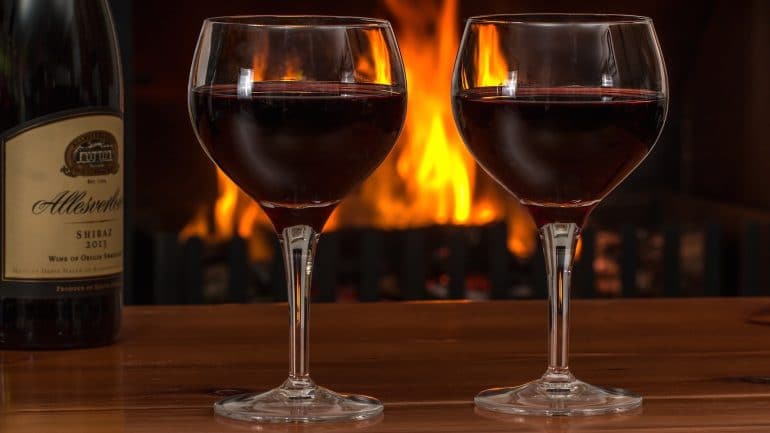
Drinking alcohol in the evening can disrupt sleep quality, although it’s the most widely used “sleep assistant” in the world. In fact, alcohol and sleep are inversely correlated, and there’s already evidence that alcohol has devastating effects on sleep.
Drinking before going to bed can help you fall asleep more quickly, but this particular habit can also disrupt your deep sleep, meaning you’ll probably be frequently waking up in the middle of the night. The end result is fatigue the next day.
What Science Says About Alcohol and Sleep Quality
The results of two recent studies confirm a negative alcohol rebound effect and its impact on deep sleep.
A Japanese study examined the effects of alcohol on sleep in ten male students. The participants were divided into three groups: the first group didn’t drink alcohol at bedtime, the second consumed a low dose of alcohol (measured by volunteer body weight), and the third group consumed a high dose of alcohol 100 minutes before bedtime. The study aimed to assess how well they were sleeping after drinking alcohol.
The researchers measured heart rate variability and monitored each participant’s sleep using a polysomnograph. Results showed that the students who consumed alcohol before bedtime fell asleep quickly, but at night their sleep was superficial and more disturbed than it was for those who didn’t drink before falling asleep. Alcohol consumption also led to an increase in heart rate. The more alcohol consumed by participants, the more it increased.
Is alcohol a stimulant? Researchers conclude that alcohol stimulates the heart rate. When they analyzed the correlation between alcohol and REM sleep, it was shown that alcohol prevents people from entering into the deepest stages of sleep.
Another study also examined the effects of alcohol on sleep among young people. Scientists were interested in the impact of alcohol intoxication on sleep, mainly. The study recruited 93 men and women aged 20–25. They measured the quality, depth, and duration of their sleep under the influence of alcohol.
Along with some of the participants actually registering symptoms related to alcohol insomnia, researchers found that when drunk, participants slept less, woke up more often at night, and felt more tired in the morning and at the end of the next business day. Interestingly, the participants slept deeply only in the first half of the night and spent less time in the REM phase of sleep.
Is It OK to Drink Wine Before Bed?
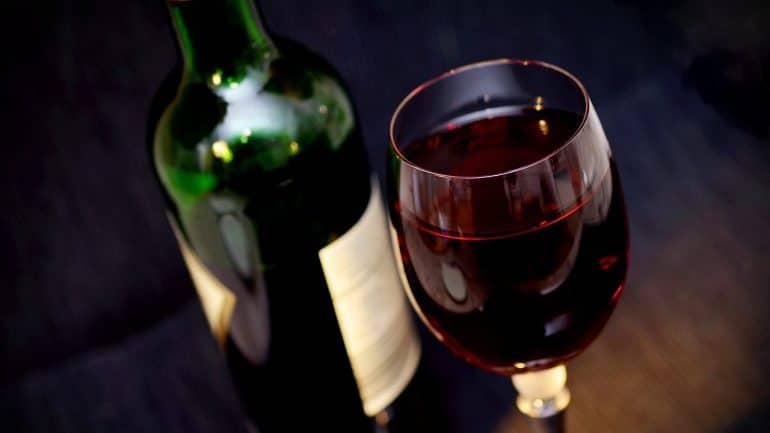
Alcohol is found to have a more significant disruptive effect on sleep in women than in men, especially concerning the feeling of fatigue the next day due to lack of sleep. However, none of these results mean that we can’t drink a glass of wine or beer after work or at dinner.
Still, some tips can help guide us on how to sleep better after drinking alcohol. For example, it’s a good idea to drink a glass of water after each alcoholic beverage or to avoid consuming alcohol for up to three hours before bedtime. Nevertheless, using alcohol as a sleep aid should be avoided. It’s advisable to look for other ways to relax if you want to get healthy sleep.
Almost everyone has had at least one alcoholic drink before bedtime—and, not infrequently, more than one. Unfortunately, alcohol and sleep problems go hand in hand. And yes, it is a way for a person to fall asleep faster, but doing so won’t get you a qualitative, relaxing sleep.
A Scientific Approach to a Nightcap
Another study recently showed that if a drink makes you nap, then you’re more likely to have a restless night’s sleep and wake up repeatedly. And that definitely won’t help you feel fresh and rested in the morning.
A group of scientists reviewed 20 studies asking, Does alcohol help you sleep at night? It involved 517 people tested across 38 different laboratories. Volunteers had to drink different amounts of alcohol. The small doses were 1–2 drinks, the moderate ones were 3–4 drinks, and the larger ones were 4 or more drinks.
While some studies were based on the results of only one “drunken” night, others covered a much more extended period. It’s also important to note that most of the participants were perfectly healthy young people with no alcohol problems.
The results of this alcohol and sleep study led scientists to conclude that the immediate and short-term impact of alcohol is that it reduces the time it takes to fall asleep. However, it was also shown that the higher the dose, the more significant its impact on deep sleep.
These observations explain why so many people rely on alcoholic beverages to fall asleep, despite experts’ warnings about the harmful effects alcohol can have on their sleep. What’s more, this habit can turn into permanent insomnia.
The Pathophysiology Behind Sleep and Alcohol Interactions
All available research delivers a more complex picture of how alcohol affects sleep and how it can also affect health in general. In all studies, it became clear that alcohol increases deep sleep in the first half of the night. In this phase, sleep has a beneficial effect on the recovery and healing of bones, muscles, and other essential tissues in the body. It also helps you maintain a robust immune system.
Alcohol and sleep apnea are also related. Deep sleep usually speeds up the processes of recovery and relaxation in the body. But at the same time, boosting this sleep stage with alcohol can worsen sleep in people who are predisposed to sleep problems like sleep apnea.
And more importantly, it has long been known that drinking alcohol reduces the duration of REM sleep. This stage of sleep is the deepest, and it’s associated with dreaming and memory consolidation. In that way, alcohol and the sleep cycle are connected.
However, according to a new study, 1–2 drinks at bedtime can prolong deep sleep without affecting REM. Nevertheless, each additional alcoholic beverage disturbs the sleep structure. It’s time to rethink drinking alcohol before going to bed—although it helps you fall asleep faster, it harms your sleep and your mind. Alcohol should never be used as a sleep aid—alcohol and sleeping pills are not equal.
A few hours after drinking alcohol, depending on the metabolism, your body starts to process it out because it classifies it as poison. This means you’ll be waking up at night to go to the bathroom. Alcohol also increases diuresis, which is another factor that causes you to get up at night while also leaving you dehydrated. All this contributes to a sleepless night.
Will Alcohol Help Me Sleep?
The sleep cycle goes through different stages every 90 minutes, with deeper sleep occurring in the second half of the night, which is also when the alcohol takes action. Most of the known alcohol effects will influence these stages of sleep, which we need to get a good night’s rest.
When you drink alcohol, you feel more at ease because it directly affects the nervous system. However, we have to keep in mind that alcohol intake in the treatment of insomnia with melatonin is not a good idea. Moreover, taking melatonin and alcohol together may even be dangerous. They shouldn’t be mixed. In fact, during the treatment of any sleep problems, it’s advisable to limit your alcohol intake.
Mixing Alcohol with Melatonin
As we stated above, the common perception that alcohol in the evening helps you fall asleep has been debunked. The truth is that the overall effect of alcohol on sleep is more harmful because alcohol shortens your sleep and leads to frequently waking up at night. Thus, insomnia after drinking alcohol, as well as worsened insomnia, are common due to the reduced effectiveness of melatonin or other sleep medication. The problem comes from combining alcohol and sedatives.
Alcohol is shown to slow down the brain and overall vital processes in the body. You’ll get the same effect from melatonin—the secretion of which happens mostly in the evening—as it helps you calm down and prepares your body for sleep. When the two are combined, so-called excessive inhibition and prolonged delays in vital functions are observed. Because of this, aggravated sleep apnea and alcohol consumption frequently go together.
Scientific studies also show that regularly mixing melatonin with alcohol has negative consequences such as the following:
- A worsening of sleep problems
- Nightmares
- Emotional issues, such as irritability and increased anxiety
- Changes in heart rate
All these lead to a reduced quality and quantity of sleep because alcohol and sleep deprivation mutually work against each other.
Mixing alcohol with synthetic sleeping pills can cause the same problems. However, sometimes the primary effect is the opposite—i.e., melatonin becomes less effective in treating sleep problems. All of this together is more than enough reason to avoid drinking alcohol while taking drugs for sleep.
Is There a Best Nightcap for Sleep?
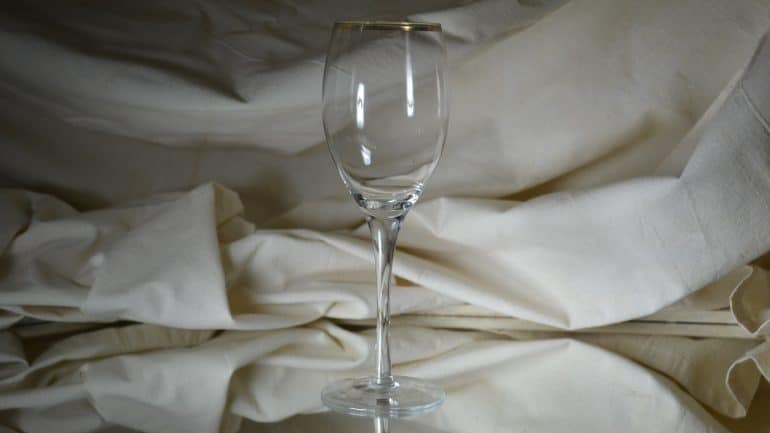
Perhaps not. However, there are some basic measures for you to follow to prevent sleep disturbances due to alcohol consumption while enjoying your favorite evening drink. Here are five tips for healthy drinking:
1. Allow three to four hours between drinking and sleeping.
If you plan to go to bed at midnight, have a glass of wine by 9 p.m. at the latest. Of course, how you metabolize alcohol depends a lot on your height, weight, race, and gender.
2. Use the two-for-one rule.
While there may not be the best alcohol for sleep, there are ways to improve how you process alcohol so that you’ll still sleep well. Don’t forget to drink two glasses of water for each alcoholic beverage you consume. This will help your body shed alcohol more efficiently and quickly.
3. Avoid champagne.
Champagne bubbles will swell your stomach, causing not only discomfort but also difficulty in breaking down alcohol. Although wine and sleep are thought to be linked positively, when the quantity of alcohol is too much, it will disrupt your sleep. Also, you should avoid soda drinks in the evening because of the potential stomachache they can cause.
4. Eat while drinking alcohol and, of course, watch how much you drink.
5. Avoid taking sleeping pills in combination with alcohol.
FAQ
Which type of alcohol is good for sleep?
No kind of alcohol is considered good for sleep. So far, the prevailing opinion is that alcohol leads to a change in the circadian rhythm (our internal 24-hour clock). Nevertheless, alcohol acts directly in the brain, disrupting how your body regulates your sleep and waking state.
In addition, since alcohol is a diuretic, your body needs to emit more fluids. Thus, when consuming alcohol, you need to go to the bathroom more often at night, which also disrupts sleep.
Why does alcohol make you tired the next day?
By disrupting the normal sleep cycle and reducing the amount of deep sleep you get, regular alcohol abuse leads to sleep deprivation and all of its consequences. When you don’t get enough sleep, you’re always tired and slow, your performance at work deteriorates, and even your family relationships can be damaged. Subsequently, this causes behavior problems such as volatile, irregular moods, moodiness, irritability, and depression.
Why can I not sleep when I drink alcohol?
Alcohol usually leads to insomnia. At first, it may help you fall asleep, but then it causes you to wake up several times during the night. It even worsens certain sleep disorders such as sleep apnea. Thus, by preventing you from entering into a deep, replenishing sleep, you can’t sleep well.
Conclusion
The studies and observations show a worse quality and quantity of sleep in individuals who consume alcohol. Those who drink before bed have fewer hours of sleep, their sleep is restless and interrupted, and they wake up more frequently and for extended periods. The conclusion regarding alcohol and sleep seems clear: alcohol, in small or larger doses, will not help us sleep better.

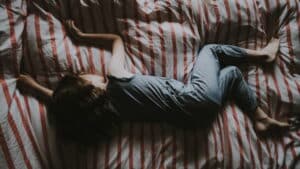
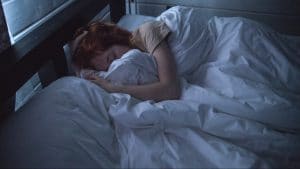

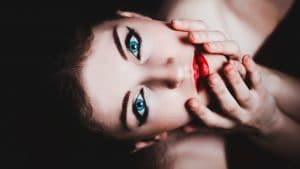
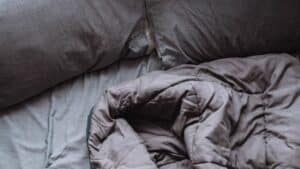

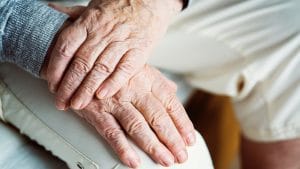
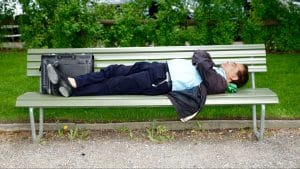
Warning: Undefined array key "format" in /home/602518.cloudwaysapps.com/cspedpjass/public_html/wp-content/themes/disturbmenot/template-parts/post-item/post-comment.php on line 23
Warning: Undefined variable $commenter in /home/602518.cloudwaysapps.com/cspedpjass/public_html/wp-content/themes/disturbmenot/template-parts/post-item/post-comment.php on line 27
Warning: Trying to access array offset on value of type null in /home/602518.cloudwaysapps.com/cspedpjass/public_html/wp-content/themes/disturbmenot/template-parts/post-item/post-comment.php on line 27
Warning: Undefined variable $commenter in /home/602518.cloudwaysapps.com/cspedpjass/public_html/wp-content/themes/disturbmenot/template-parts/post-item/post-comment.php on line 29
Warning: Trying to access array offset on value of type null in /home/602518.cloudwaysapps.com/cspedpjass/public_html/wp-content/themes/disturbmenot/template-parts/post-item/post-comment.php on line 29